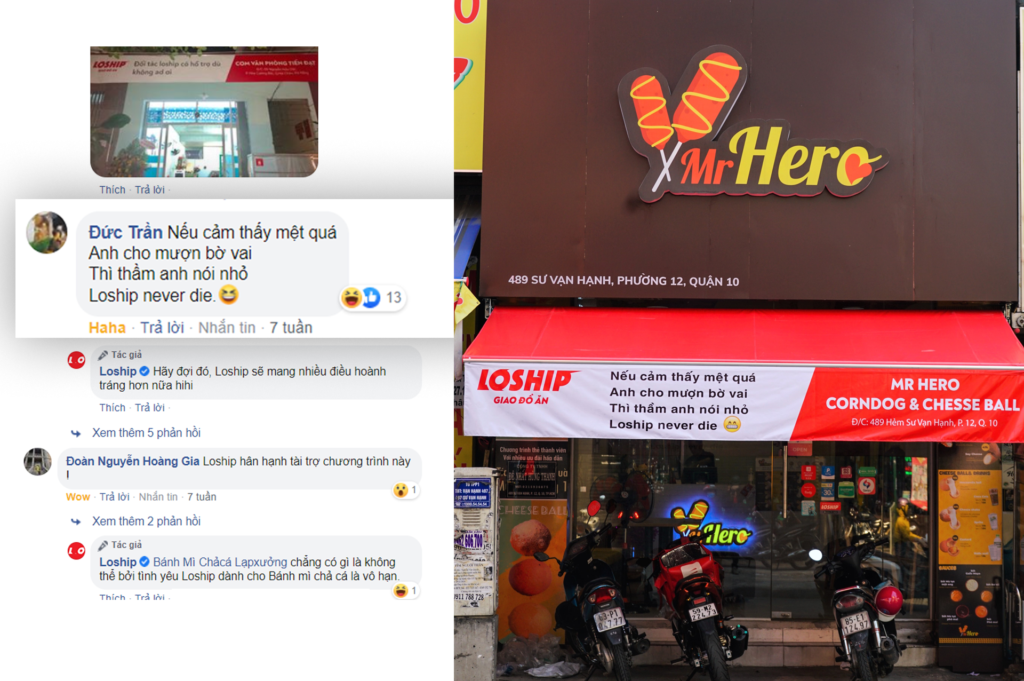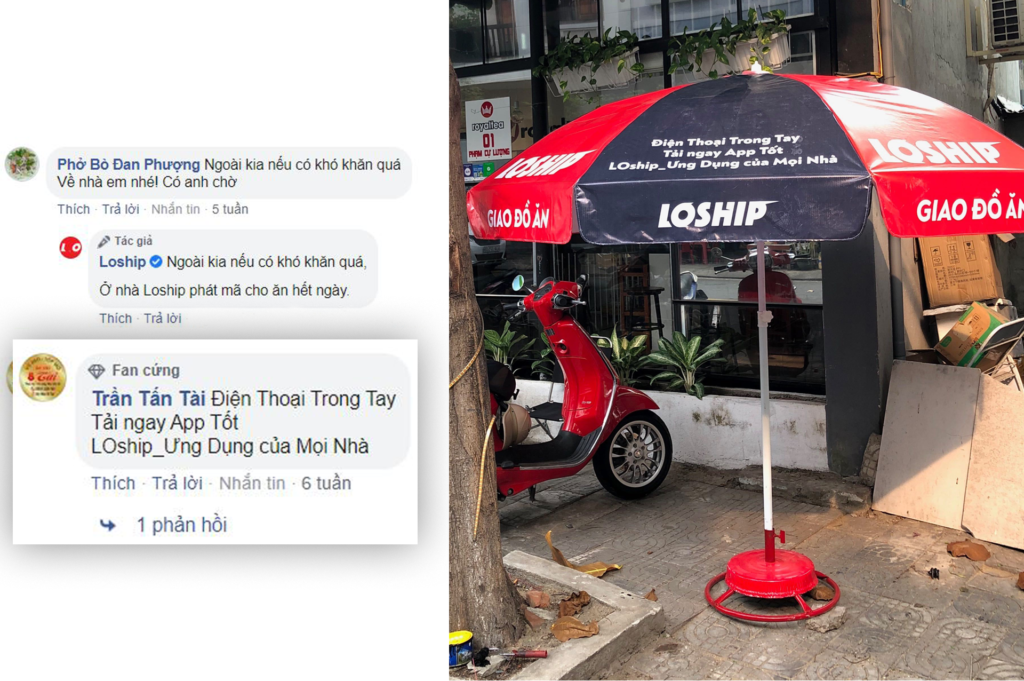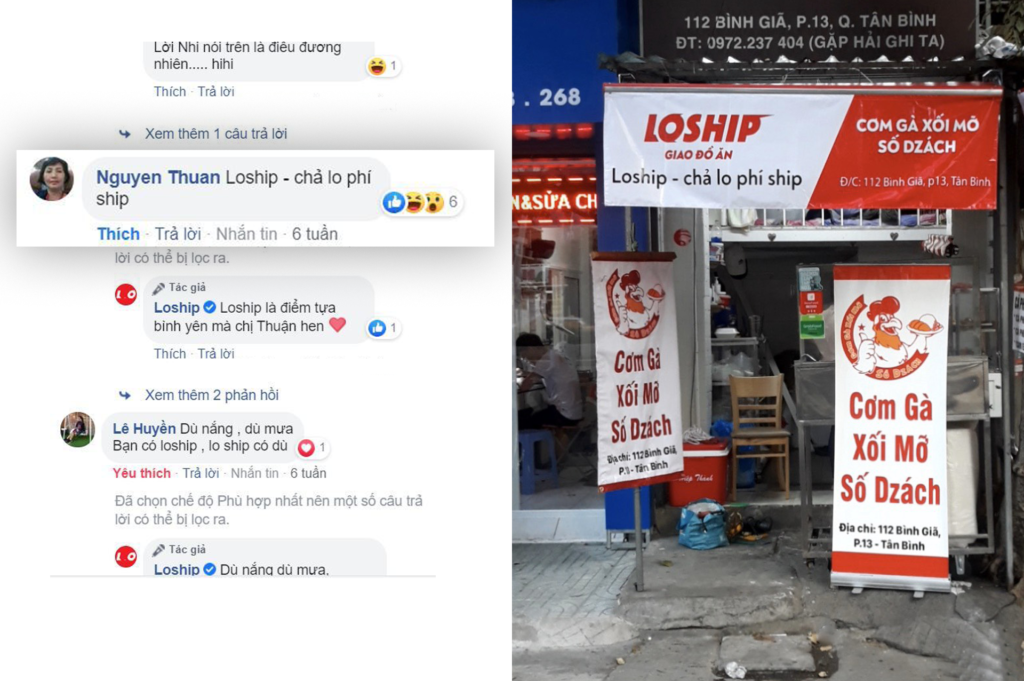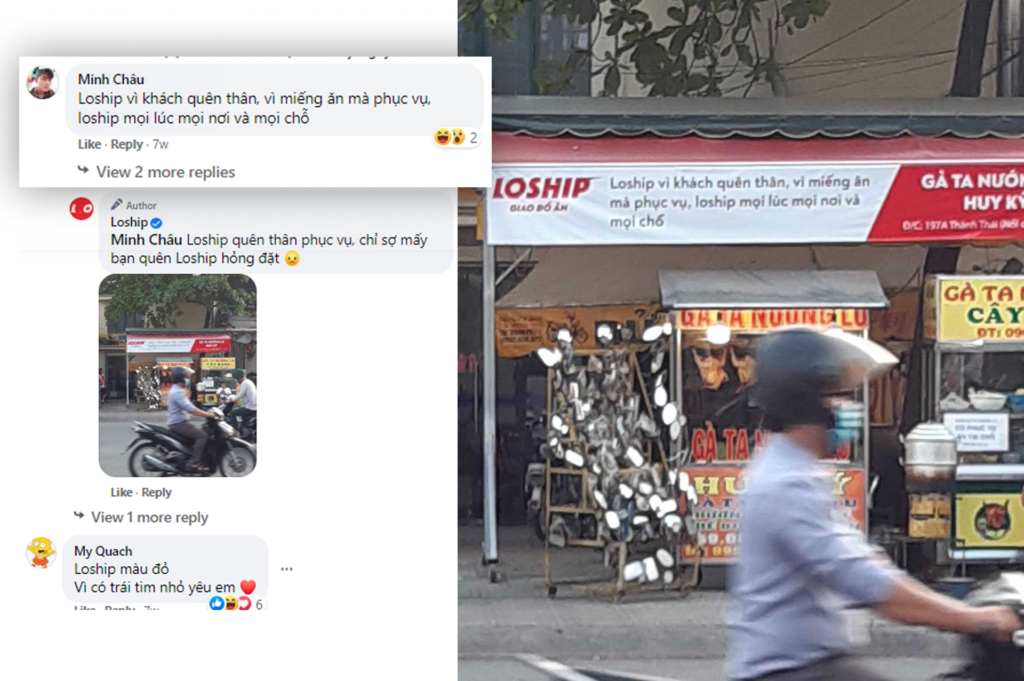To enter an industry where big companies are already operating in the space is a bold yet intimidating prospect. The same story goes with Loship – the one and only local representative in Vietnam’s food delivery market, competing against four Asian unicorns including SEA and Grab from Singapore, Woowa Brothers from South Korea, and Go-Jek from Indonesia.
Loship has become an inspirational brand since the moment it launched in 2017, marching at a sky-rocketing rate and will soon join the league of unicorns. Instead of following its peers into the cash-burning battlefield for market share, Loship is likely to stick with the basics and focus on customer experience. “This is what keeps us in the game and conquers the locals,” said Mr. Trung Hoang Nguyen – CEO of Loship.
Being local doesn’t always guarantee a hit
‘Being Local’ sounds a good positioning space for startups who can have a competitive edge over foreign rivals. However, it doesn’t always translate to success. Take the example of Vietnam’s food delivery market, where a handful of local startups have been knocked out by intense competition. Vietnamese startup Lala pulled out of the market after a year of operation. Foodpanda sold its business to domestic rival Vietnammm in late 2015, which was then acquired by South Korea’s unicorn Woowa Brothers. Those scenarios have reflected the fierce competition where only strong contenders with the right strategies can hang in the game.
So what has kept Loship in the game as the only local startup against the odds? According to Mr. Trung Hoang Nguyen – CEO of Loship, local business knowledge, a commitment to flexibility and innovation, as well as customer obsession, have been vital.
“As a Vietnamese startup, we are receiving a little more ‘local love’ from the community, which is certainly an advantage. However, it’s just a piece of the pie. Customers may try out your service once to support the local brand, but at the end of the day, it’s all about your product and your customer service that keeps them coming back for more,” said Trung.
Know the local tastes
Regional companies might have the resources to do in-depth market analysis, but they don’t have the boots-on-the-ground perspective of a local business. So, Loship obviously has the advantage to deeply understand its local customers’ insights and preferences, which in turn gives them an edge in satisfying specific demands of the local market.
Loship offers a wider range of food on its menu than the others, with a dense network of partners from large restaurants to small pavement stalls. Also, Loship is the only food delivery brand in Vietnam that takes free shipping to the forefront, with free shipping applied on any order. This strategy is capitalized on the fact that, when it comes to customer purchasing behavior, especially for Vietnamese, it is free shipping that has the strongest effect, above all other aspects. 90% of customers say that they are more likely to make purchases online if shipping is free, and the higher shipping costs, the easier it is for customers to cancel orders, no matter how hefty the discounts are.
“No other players are offering free shipping as they don’t understand the local culture here,” shared Trung. That is to say, Loship has successfully leveraged its knowledge of the local market, as well as know-how concerning local tastes and preferences to get into the minds of its customers, step-by-step conquering them.

Empower customers to tell the brand stories
Loship’s marketing strategy focusses more on building a good product and engaging customers over large media spends or traditional one-way marketing methods such as TV or billboards.
“The key here is orientating marketing towards people, not obsessing over features, functions, tactics, or competitors. Nothing is greater than a campaign that touches and ignites the customers,” shared Nguyen Hoang Trung.
For example, in its latest marketing campaign, Loship has empowered customers to take the lead in creating content for its outdoor marketing merchandise, including the sunshades and umbrellas placed at Loship Merchant’s stores. The campaign has been the talk of the town as it gathered more than 1,000 customers contributing to generate content ideas, which have been used exactly the same without any modifications. More interestingly, Loship is the first-ever Vietnamese brand in history that is able to convene as many creative people to join hands in one campaign.
This marketing campaign of Loship works for a few different reasons: It makes customers feel special and part of the brand, it gives the brand valuable insight into what its customers think, and it provides a unique opportunity to show the community that Loship is a brand that truly values customers.
“Marketing is not a cold war of money spent but a battle for customers’ minds. Customers are no longer interested in monologues and fed up with boring advertisements. To stand out, we need to do something different, something unique and something that truly engages with customers. We believe customers’ stories carry more weight than any message the marketers can come up with. And this will provide us with bigger results than huge spending will ever be able to do,” Mr. Nguyen Hoang Trung – CEO of Loship shared.

This particular campaign has resulted in a buzz among Vietnamese customers. In excess of 1,000 content ideas were solicited; over 500 sentence patterns were printed on 500 outdoor merchandise within just 30 days, and placed in 500 Loship’s merchant-partners across 4 big cities in Vietnam – normally it would take up to 5 months to reach such overwhelmingly high numbers. Moreover, the campaign contributed to an approximately 20% growth of Loship app downloads and daily transactions, reaching more or less a million Vietnamese customers on social media.

Campaign during COVID-19 times
This recent outdoor advertising campaign has taken place amid the novel coronavirus outbreak. At this time of uncertainty, several brands are scaling back their marketing efforts to survive the crisis. Loship, on another note, has shed light on its clever, timely, and opportunistic marketing strategies.
“When life gives you lemons, make lemonade. We are certainly living through some of the most challenging times of our lives. But we can choose our response to this. We can choose to shut down, to hide away, to be overwhelmed by anxiety. Or we can choose another way. Life is 10% what happens to you and 90% how you react to it.”
“With that said, we’re by no means trying to stimulate customer demand at times like this. Instead, we want to set a strong foundation for our business when life goes back to normal. Imagine, when everybody starts to resume work, they will be able to see our OOH displays all the way to work, and that sounds promising. With difficult times come new opportunities, and we, as a Vietnamese company, always strive to overcome it,” Trung concluded.

The customer-centric strategies are obviously working for Loship on its way of becoming the next “unicorn” of Vietnam – and they are showing no signs of slowing down, even during times of disruption and upheaval. By knowing customer taste, being customer-obsessed and making the most of their local strengths, it is highly possible that Loship can level the playing field and dominate their local market anytime soon.





